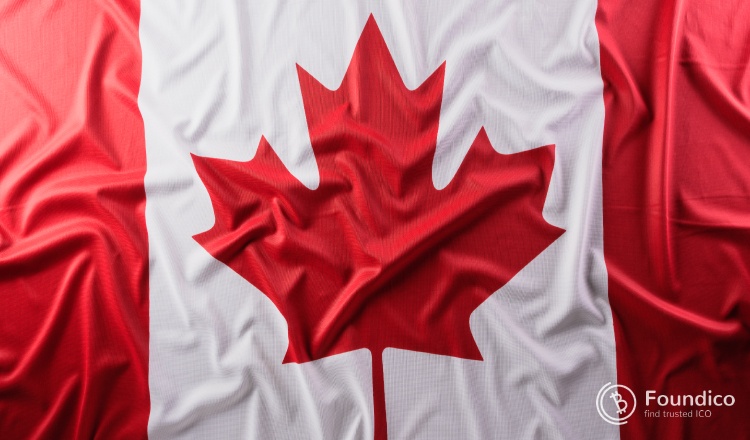Canada is a country in North America. Its ten provinces and three territories stretch from the Atlantic to the Pacific and northward into the Arctic Ocean, covering a total area of 9.98 million square kilometers (3.85 million square miles), By total area, it is the world's second-largest country. A significant part of Canada remains uninhabited due to the temperature and proximity to the North Pole.
History and Government
The Government of Canada is a constitutional monarchy and a federal parliamentary democracy, currently headed by Queen Elizabeth II. The Canadian parliament is made up of the King or Queen of Great Britain, the Federal Government, the two Houses of Senate and Commons, state legislatures, and the Governor-General, who represents Queen Elizabeth.
This maxim applies to Canadian voters and residents too. Independent governments rule the region, all of which are controlled by the federal government.
The legislation is signed and remembered in the name of Queen Elizabeth II, who is also the Queen of Canada.
Canada and the United States have the world's largest trading relationship due to their geographical proximity, and the two countries trade more than any other two countries. However, Canada has suffered as a result of this close economic relationship. One of these damages is pollution caused by American factories operating along the border between the two countries.
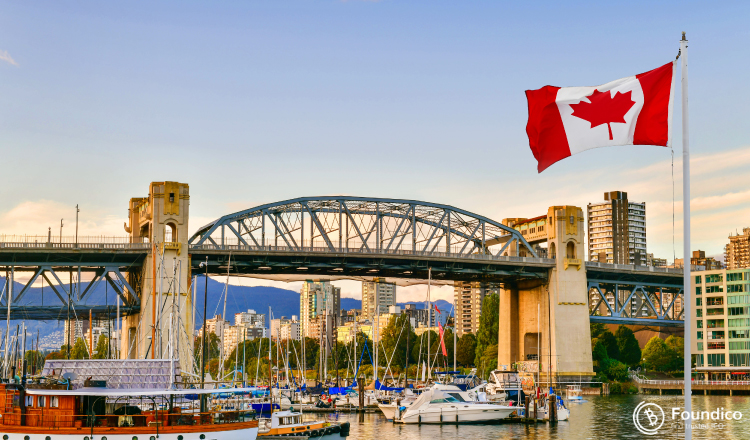
Canada has abundant natural resources. Its climate is cold and polar in most areas. The climate in the southwest, where Vancouver is situated, is mild. Niagara Falls, the world's largest waterfall, also borders with the United States.
Until 1713, it was a French colony. Britain took control in that year. On July 1, 1867, Canada became independent. The United Kingdom's constitutional monarchy governs the Canadian Confederation.
Ottawa, where the Federal Parliament and the Governor-residence Generals are located, is Canada's political capital. He is a Canadian who is the ceremonial head of state and Queen Elizabeth II's representative in Canada. While the governor is not in charge of anything, he is active in the administration and the judiciary in some way. The Queen appoints the Governor-General on the Prime Minister's advice.
Economy
As of 2018, Canada has the tenth-largest economy in the world, with a nominal GDP of US$1.73 trillion. It has a highly globalized economy and is one of the least corrupt countries in the world.
It is also one of the top ten trading nations. On The Heritage Foundation's Index of Economic Freedom, Canada has a mixed economy that ranks ahead of the United States and most Western European countries, with low income inequality.
The average household disposable income per capita in the country is significantly higher than the OECD average. The Toronto Stock Exchange is the world's ninth largest stock exchange by market capitalization, with over 1,500 companies listed and a total market capitalization of more than US$2 trillion.
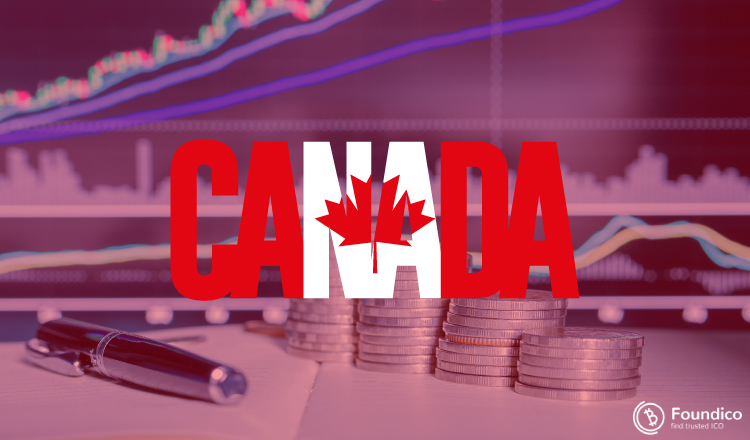
Since the early twentieth century, Canada's manufacturing, mining, and service industries have evolved to transform the nation from a largely rural economy to an urbanized, industrial one. The service sector, which employs roughly three-quarters of the workforce in Canada, is the backbone of the economy, as it is in many other developing countries. However, Canada stands out among developing countries in terms of the importance of its primary sector, which includes the forestry and petroleum industries.
The Toronto Financial District is North America's second largest financial center, the world's seventh largest job center, and the epicenter of the country's financial industry.
Since World War II, Canada's economic integration with the United States has grown rapidly. The Automotive Products Trade Agreement of 1965 allowed car manufacturers to trade across Canada's borders. In the 1970s, Prime Minister Pierre Trudeau's Liberal government established the National Energy Program (NEP) and the Foreign Investment Review Agency in response to concerns about energy independence and foreign ownership of manufacturing industries (FIRA).
To promote foreign investment, Prime Minister Brian Mulroney's Progressive Conservatives scrapped the NEP and renamed FIRA Investment Canada in the 1980s. The Free Trade Agreement (FTA) between Canada and the United States was signed in 1988, and the North American Free Trade Agreement (NAFTA) was signed in 1994, expanding the free-trade zone to include Mexico (later replaced by the Canada–United States–Mexico Agreement). Canada has a large cooperative banking system, with the highest credit union membership per capita in the world.
Canada is one of the few developing countries that is a net energy exporter. Atlantic Canada has extensive offshore natural gas fields, and Alberta has significant oil and gas reserves.
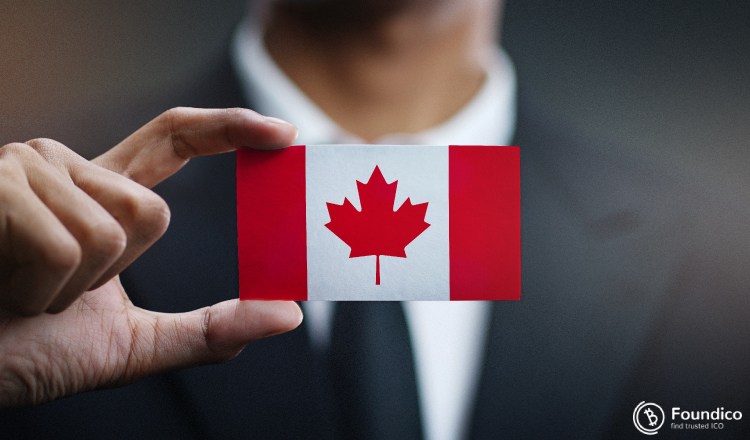
Because of the vastness of the Athabasca oil sands and other riches, Canada holds a 13 percent share of global oil reserves, ranking third behind Venezuela and Saudi Arabia. Canada is also a major exporter of agricultural products, with the Canadian Prairies producing some of the world's most valuable wheat, canola, and other grains.
Zinc, uranium, gold, nickel, platinoids, aluminum, steel, iron ore, coking coal, lead, copper, molybdenum, cobalt, and cadmium are among the country's top exports, according to the federal Department of Natural Resources. Because of nearby mines or timber sources, many towns in northern Canada, where agriculture is difficult, are able to survive. Automobiles and aeronautics are especially important industries in Canada's manufacturing sector, which is centered in southern Ontario and Quebec.
Regulations of Cryptocurrency in Canada
Canada allows the use of cryptocurrencies, including Bitcoin. According to a Financial Consumer Agency of Canada webpage on digital currencies, “you can use digital currencies to buy goods and services on the Internet and in stores that accept digital currencies. You may also buy and sell digital currency on open exchanges, called digital currency or cryptocurrency exchanges.”
However, cryptocurrencies, including Bitcoin, are not considered legal tender in Canada; only the Canadian dollar is considered official currency in Canada.
The Currency Act defines legal tender as:
- bank notes issued by the Bank of Canada under the Bank of Canada Act
- coins issued under the Royal Canadian Mint Act.
Canada’s tax laws and rules also apply to digital currency transactions, including those made with cryptocurrencies, and digital currencies are subject to the Income Tax Act. The Canada Revenue Agency (CRA) “has characterized cryptocurrency as a commodity and not a government-issued currency.” Accordingly, the use of cryptocurrency to pay for goods or services is “treated as a barter transaction.” According to the Financial Consumer Agency, goods purchased using digital currency must be included in the seller’s income for tax purposes. GST/HST also applies on the fair market value of any goods or services you buy using digital currency.
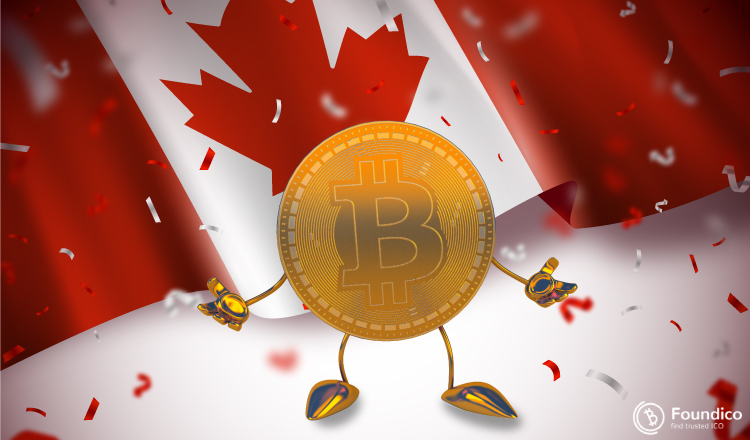
When you file your taxes you must report any gains or losses from selling or buying digital currencies.
On the issue of taxation, the Canada Revenue Agency adds that, where digital currency is used to pay for goods or services, the rules for barter transactions
apply. A barter transaction occurs when any two persons agree to exchange goods or services and carry out that exchange without using legal currency. For example, paying for movies with digital currency is a barter transaction. The value of the movies purchased using digital currency must be included in the seller’s income for tax purposes. The amount to be included would be the value of the movies in Canadian dollars.
On June 19, 2014, the Governor General of Canada gave his assent to Bill C-31 (An Act to Implement Certain Provisions of the Budget Tabled in Parliament on February 11, 2014, and Other Measures), which includes amendments to Canada’s Proceeds of Crime (Money Laundering) and Terrorist Financing Act.
The new law treats virtual currencies, including Bitcoin, as “money service businesses” for the purposes of the anti-money laundering law. The Act is regarded as the “world’s first national law on digital currencies, and certainly the world’s first treatment in law of digital currency financial transactions under national anti-money laundering law.”
On August 24, 2017, the Canadian Securities Administrators (CSA) published CSA Staff Notice 46-307 on Cryptocurrency Offerings, “which outlines how securities law requirements may apply to initial coin offerings (ICOs), initial token offerings (ITOs), cryptocurrency investment funds and the cryptocurrency exchanges trading these products.” On February 1, 2018, The Globe and Mail reported that the Ontario Securities Commission had approved the country’s first Blockchain fund—Blockchain Technologies ETF.
The Bank of Canada, Payments Canada, and R3, a distributed database technology company, are involved in a research initiative called Project Jasper “to understand how distributed ledger technology (DLT) could transform the wholesale payments system.” Phases 1 and 2 of the project are “focused on exploring the clearing and settlement of high-value interbank payments using
DLT.” Phase 3 explores “the potential benefits from integrating this “cash on ledger” with other assets such as foreign exchange and securities.”

 SpacePay - SpacePay is a revolutionary cryptocurrency payment software solution designed to revolutionize the way people transact in the digital age. SpacePay bridges the gap between traditional financial infrastructure and the decentralised world of blockchain technology. SpacePay tackles the primary obstacles faced by the cryptocurrency ecosystem, such as the lack of accessibility and usability for everyday transactions.
SpacePay - SpacePay is a revolutionary cryptocurrency payment software solution designed to revolutionize the way people transact in the digital age. SpacePay bridges the gap between traditional financial infrastructure and the decentralised world of blockchain technology. SpacePay tackles the primary obstacles faced by the cryptocurrency ecosystem, such as the lack of accessibility and usability for everyday transactions.